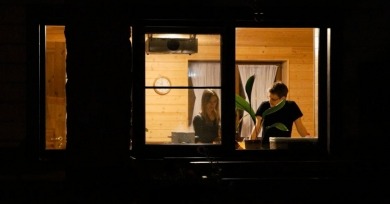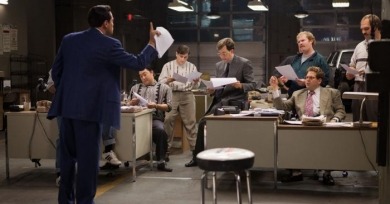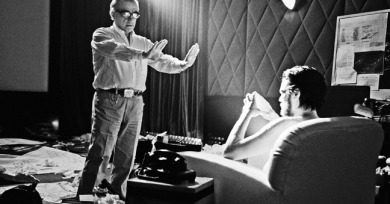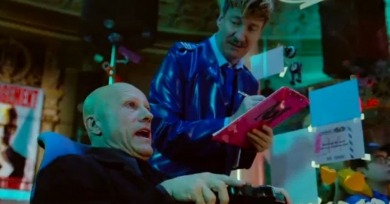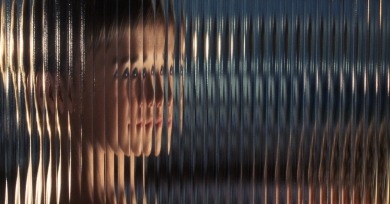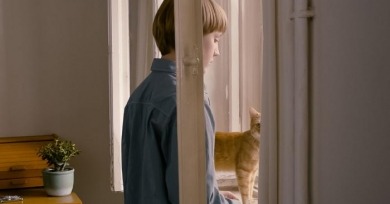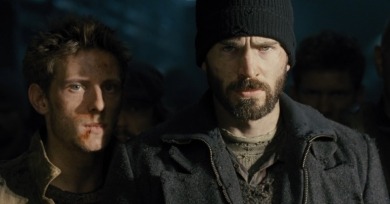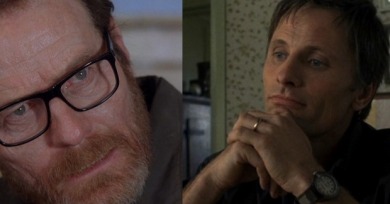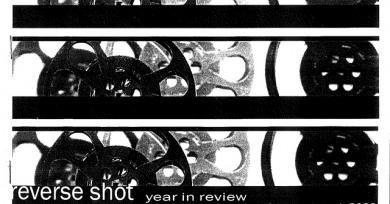Jeff Reichert
The intellectual questions in nonfiction of late have swirled around hybridity and exploding forms, but hopefully in the wake of CITIZENFOUR we’ll be refocused on the basics of filmmaking: Poitras has crafted a real-life thriller more energetic than Kathryn Bigelow’s infinitely higher budgeted Zero Dark Thirty.
The Wolf of Wall Street is perhaps the most despicable, entertaining, and despicably entertaining film we’ve yet seen from Scorsese, plunging headlong into the excess surrounding Belfort’s meteoric, hedonistic rise and pillow-soft landing.
For such an icon, Scorsese is fairly tricky to pin down. What threads, if any, connect his various, distinctive films? Is he more fascinating a director because of commonalities between his films or divergences?
Martin Scorsese had a terrific time during the production of Public Speaking, his portrait of writer and New York mainstay Fran Lebowitz. I know this not from anecdotal evidence or first-hand experience of the shoot, but from what’s on display in the film itself.
Goodfellas is a nervy blast—nostalgia-soaked, endlessly quotable, and oddly fun even as it grinds toward a tragic drug-addled end. Casino, both chillier and more hothouse by turns, nauseatingly violent and deeply, woefully sad, is no one’s idea of a good time.
In this Reverse Shot Talkie, host Eric Hynes takes French actor-director Mathieu Amalric up to Manhattan's High Line to talk about his new film, The Blue Room (out now from Sundance Selects), which is based on the steamy 1964 crime novel by Georges Simenon.
The film is something of a paean to the value and power of the editor—not just as a figure who helps writers communicate their ideas in clear sentences, but as one who shapes the overall voice, tone, and concerns of a publication over time.
His new film is certainly underwhelming in my living room, but it’s hard to imagine The Zero Theorem would be much to look at in a theater either, so uninspired are its futuristic images, the likes of which we’ve grown well accustomed to since the days of Blade Runner.
In its almost bratty simplicity it shows up so many contemporary nonfiction films, which often seem to exist only to document the exemplary or the culturally notable, and in their slavish obsession with their subjects’ import end up squelching the kind of resonance that Italianamerican casually exudes.
All these years later we’re still thinking about A.I. and how the film manages to engender so much human empathy while remaining an essentially cold, remote work largely told from the point of view of robots.
How is it that Ramon Zürcher’s beguiling, curious, deceptively slight first feature, The Strange Little Cat, seems to take place over the course of one family’s mundane afternoon, and at the same time in every possible moment in this family’s history?
Martha Stephens and Aaron Katz talk about their new film Land Ho! while strolling through New York's Central Park.
There’s not a section of action or combat in The Avengers that seems considered enough to be worth remembering, but there are more than a handful of such sequences that linger after the credits roll in Bong’s new film, Snowpiercer.
Though several of his films skirt around and pick up themes and situations from the Russian author’s most venerated work, Norte is Lav Diaz’s first full-throated stab at Crime and Punishment.
Pacho Velez and Stephanie Spray revisit their film Manakamana while riding the Roosevelt Island Tram.
As consumers of television and unwavering lovers of the art of cinema, we asked our writers to put the notion that “television is the new cinema” to the test.
There is no narrative arc to the 3D-shot Charlie Victor Romeo; there are just different planes, different reasons for the crashes, all left opaque to the viewer until the arrival of a series of clinical slides announcing casualties and causes after abrupt cuts to black signifying the plane has gone down.
The legendary Hong Kong filmmaker sits down with host Eric Hynes to talk about his latest feature, The Grandmaster.
Why is it an important time? Because it’s now. And we’re here. For our tenth-anniversary symposium, then, we want to stand in numbers against the gloom-and-doomers.
We envisioned our publication as a product of a particular culture—that of the “film-as-art journal,” which we knew only as specifically the domain of print—one we might have known was dying around us if only we’d checked our impetuous enthusiasm long enough to pay attention.
